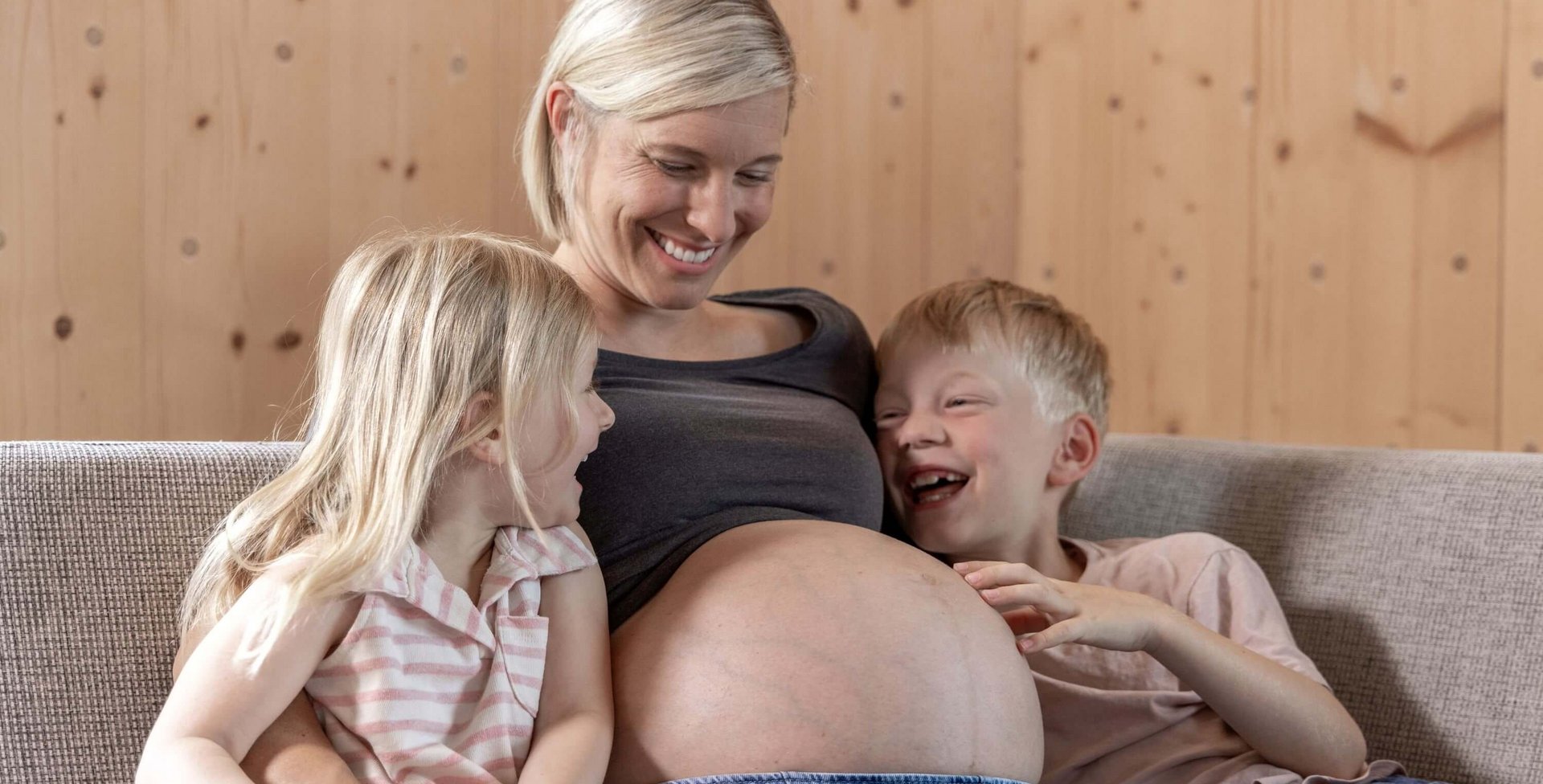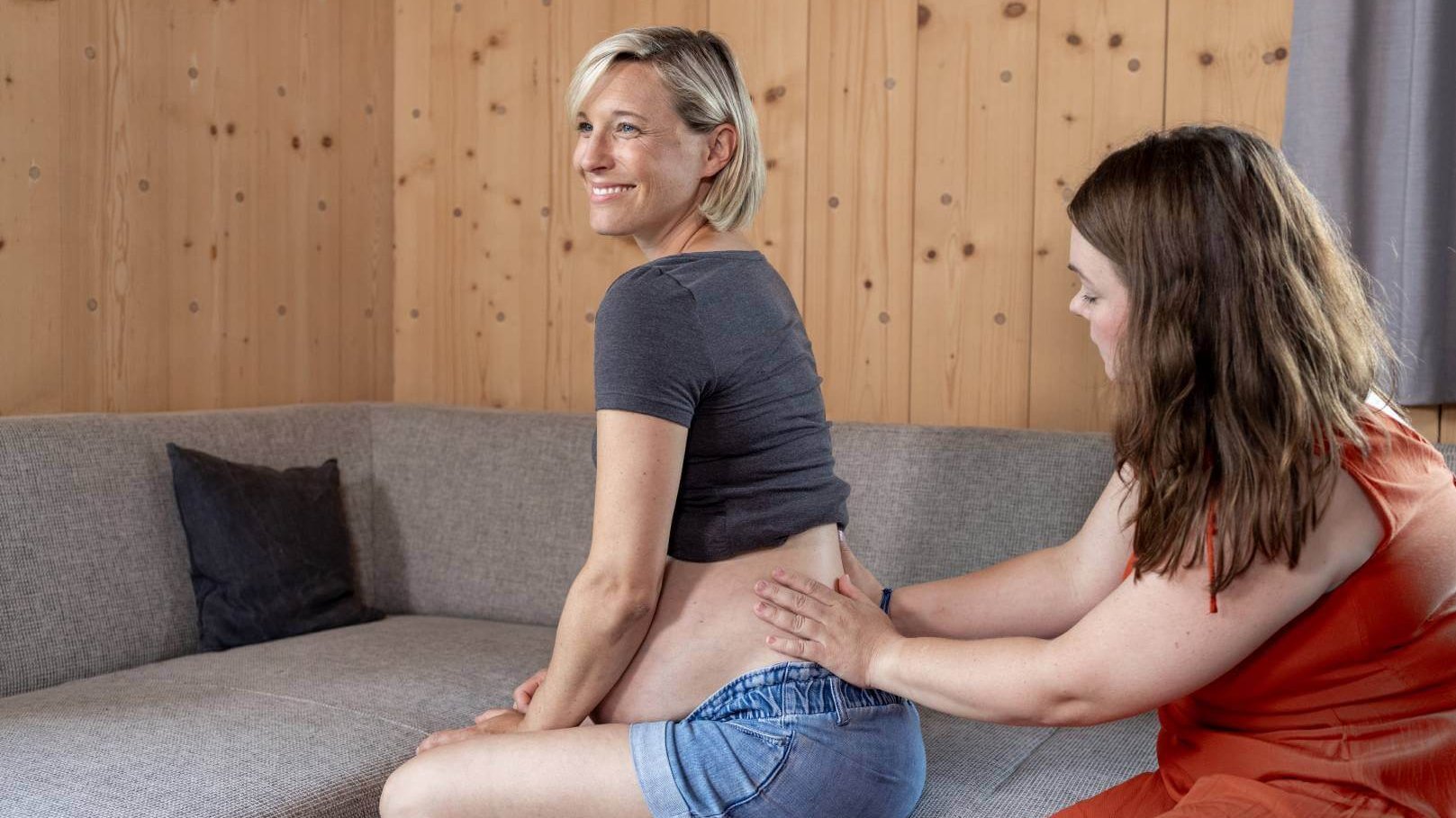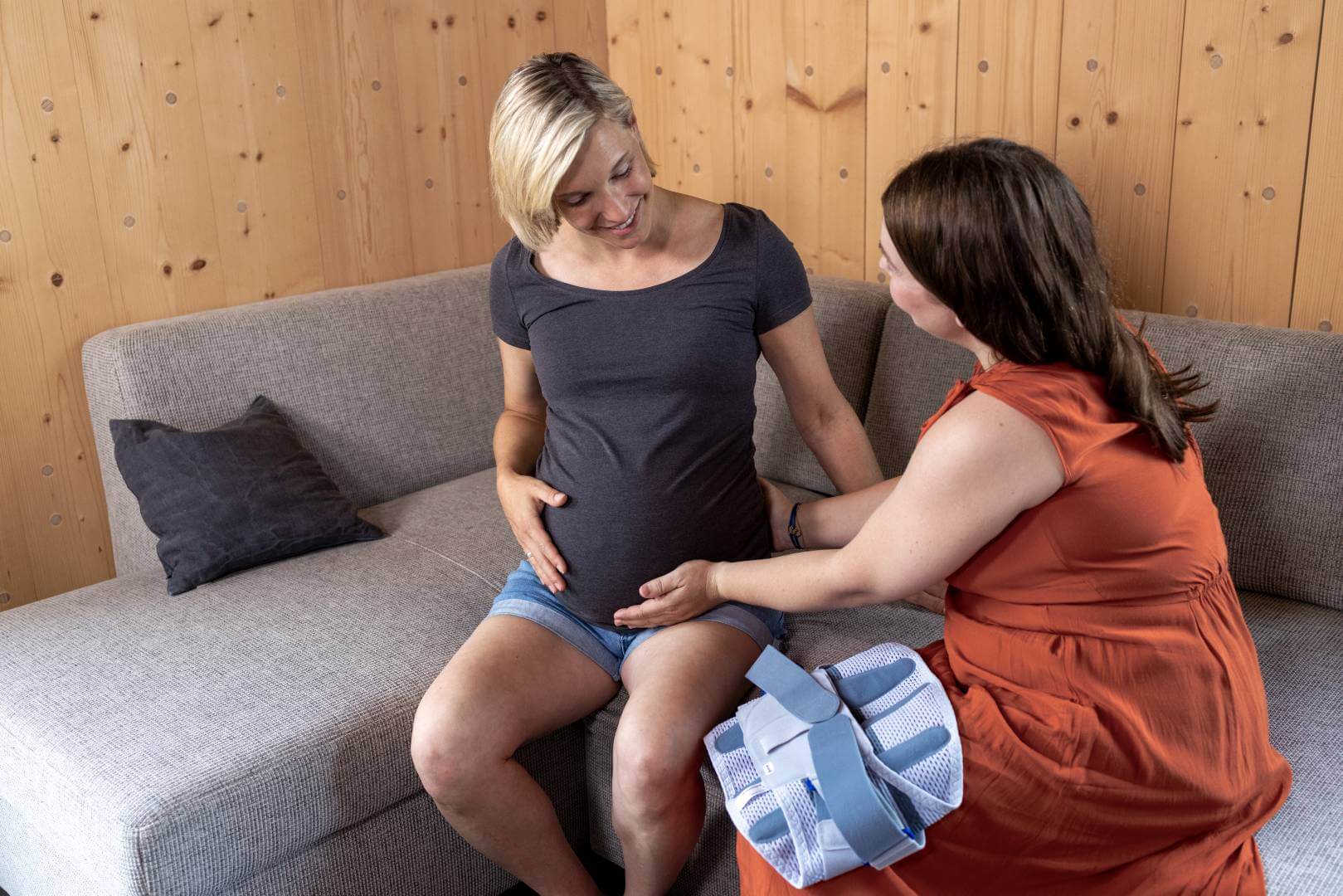
Pregnancy
Tips for pregnant women
Midwife Maria being interviewed about improved well-being during pregnancy and her work
Maria Werner has three children. She has been a midwife for more than 15 years – “with heart and soul” as she says. “My work is almost a vocation for me.” Find out in our interview why Maria loves her work so much and why she believes that being supported by a midwife is worthwhile. She also gives tips relating to common problems during pregnancy.

Editor: Maria, why does your work as a midwife make you so happy?
Maria Werner: Despite my many years’ experience, I’m still fascinated by the miracle of pregnancy and birth. It gives me great joy to support families during the times before and after conception, and to provide tips as well as practical help. I don’t take it for granted that I’m allowed to be so close to the families in the first few weeks after the birth. I can help and support them, listen, or just be there for them when their baby arrives and they grow together as a family.
Supporting parents-to-be
Editor: “What do I need a midwife for?” is a frequently asked question. In your opinion, what are the advantages of asking a midwife to “join your team” as parents-to-be?
Maria Werner: We have a different perspective on many things and allow a lot of time to patiently answer questions and address worries. In this way, we can guide pregnant women effectively through this turbulent time that they have to face, and make sure they’re relaxed – right from the beginning. Regular discussions with us are useful to complement OB/GYN appointments and to prepare for the birth, postpartum period, and breastfeeding. With the first child in particular, there are many new experiences and changes that can really overwhelm you.

As a new mother, I was incredibly grateful to have a great midwife by my side.
Maria Werner
Midwife and mother of three children
Physical changes during pregnancy
Editor: What changes does the body undergo during pregnancy?
Maria Werner: In additional to hormonal roller-coasters, the body responds with several physiological adjustments: because of the uterus’ huge growth, the organs have to shift. Based on the increasing weight of belly and breasts, the body’s center of gravity changes and a hollow back develops. The additional load can also cause the foot arches to decrease. Furthermore, the cartilaginous connections, tendons and ligaments in the pelvis become softer to provide sufficient space for the birth. The quantity of blood in the body also increases – after all, two people have to be supplied with nutrients now.
Common problems during pregnancy
Editor: Some of these changes sadly cause problems, don’t they?
Maria Werner: That's right. Most women feel nauseous, they’re sensitive to smells, or they’re sick during the first trimester because of hormonal changes. The changes to the pelvis as well as the spine and the additional body weight can cause back pain and symphysis pain.
During pregnancy, blood volume increases by around 40%, and the vascular resistance in the veins reduces because of hormonal changes. The expanded veins can transport blood less effectively which can result in pooling in the leg veins. About two thirds of women therefore develop water accumulation (edema) in the legs or feet, which can be very painful. In these cases, medical compression stockings are helpful – I’d recommend talking to a physician in cases of heavy, painful legs.
Editor: In addition to physical aspects, psychological factors also play a role, don’t they?
Maria Werner: That’s true. Pregnancy sometimes causes uncertainty. Whether this is about the future of the couple, the existing family, or work. This can cause stress or even anxiety. It’s therefore important to address these feelings openly and to seek professional help if needed. There are various counseling centers for this, such as pregnancy conflict counseling.

Help with problems
Editor: Let’s go back to the physical problems: based on your experience, what can help and provide relief?
Maria Werner: Some problems will subside by themselves over time. In cases of nausea or feeling sick, those affected can be treated effectively with essential oils or acupuncture.
With back pain, moderate exercise is usually beneficial. Physiotherapy or osteopathy can be helpful as well. The spine and the hip area can also be supported with an orthosis, such as the Spinova Mum: it stabilizes the pelvis, gently lifts the belly, and thus relieves the back.
I witnessed so many women’s relief when they were finally able to wear an orthosis.

Get to know Spinova® Mum
Orthosis to relieve the lumbar spine and stabilize the SI joint during and after pregnancy (regeneration)
Exercise during pregnancy
Editor: You just mentioned exercise: what needs to be considered?
Maria Werner: Exercise is very important. There are studies substantiating that pregnant women who exercised regularly had fewer problems. Pregnancy exercises, yoga, Nordic Walking, or just going for a walk are great. In particular, if the mother-to-be has always been active before her pregnancy, she should definitely stick with it. As long as she feels comfortable, of course, and it’s not too much strain on the body. But that’s something for the individual to consider. Check with a physician if you’re not sure.
Tips for postpartum
Editor: What needs to be borne in mind after the birth?
Maria Werner: After giving birth, physical and mental rest are incredibly important. The new mothers should safeguard their postpartum period. Body and mind need time and peace to process everything and to recover.
For me as a midwife, I believe it’s key to train the pelvic floor soon after the birth. Usually, simple exercises are enough to get the right feeling back. And after a certain time, it’s indispensable in my opinion that the new mothers should visit postpartum classes.

Editor: Thank you so much for this valuable information! And finally, what tip that you give your charges is particularly dear to you?
Maria Werner: In our fast-paced times, a lot of external pressure is created that is usually unwelcome – by social media for example. Everyone is trying to do everything right or even perfectly, but that’s nonsense. It creates unnecessary stress. Just be in the moment and try to enjoy this special time, be aware of the little things, and appreciate them.
You might also be interested in this

Compression stockings during pregnancy
Card subtitle
Feeling great all-round with compression stockings during pregnancy!

